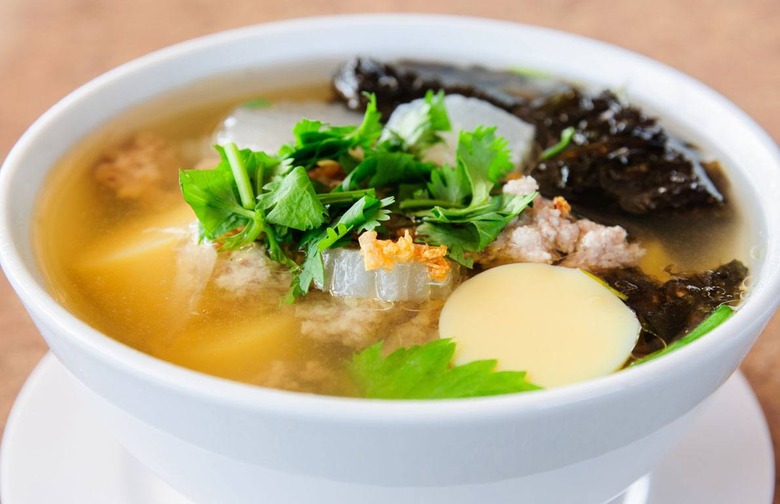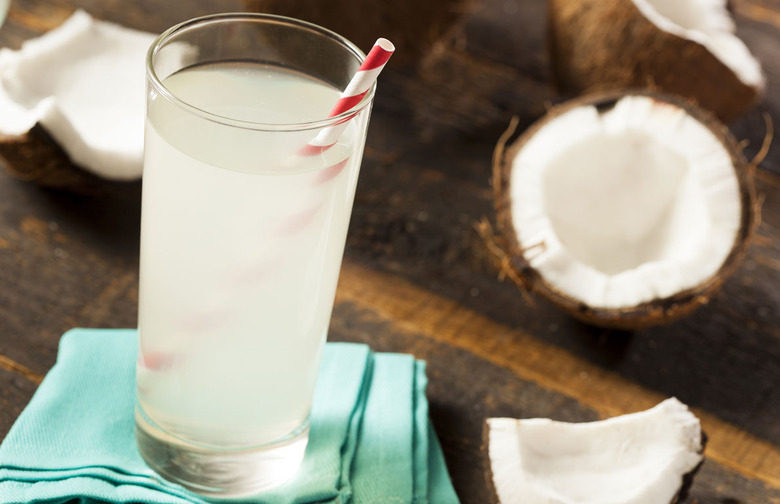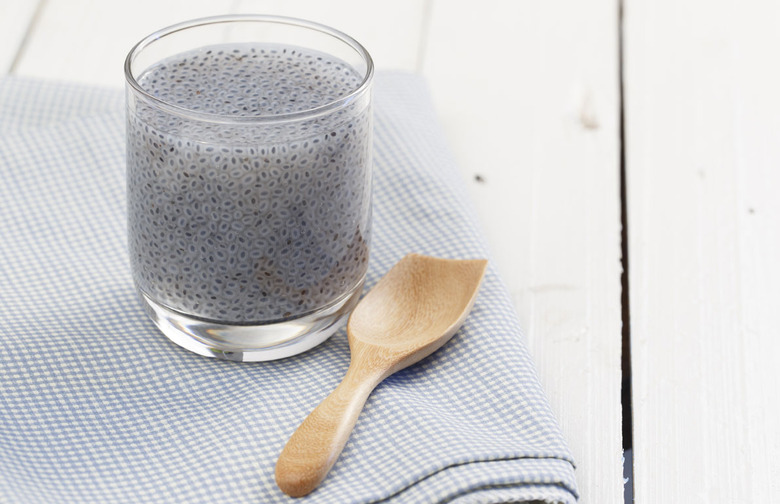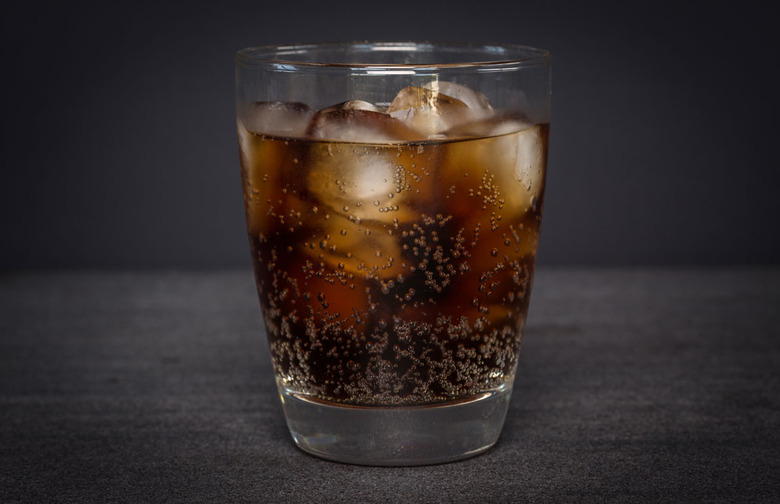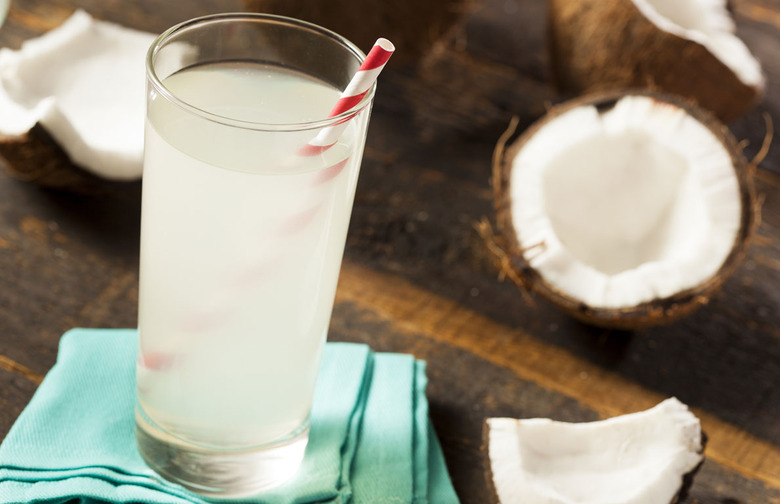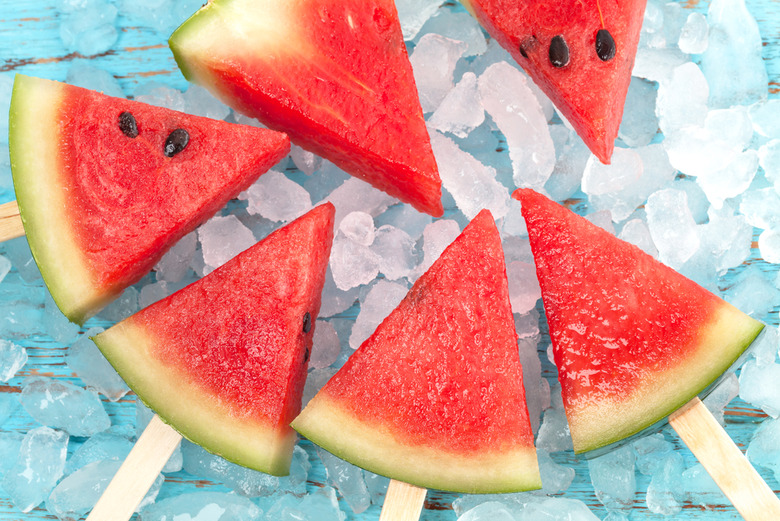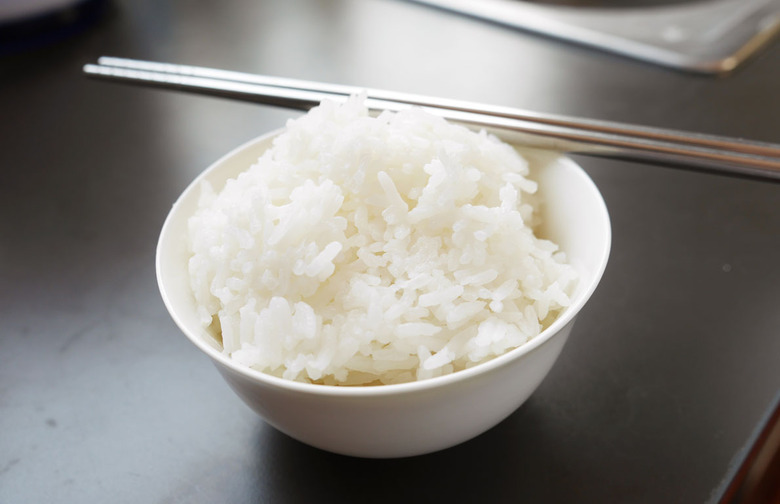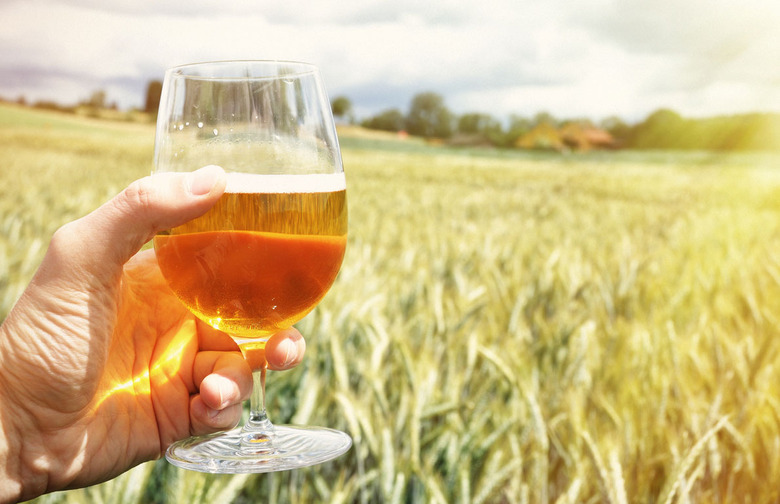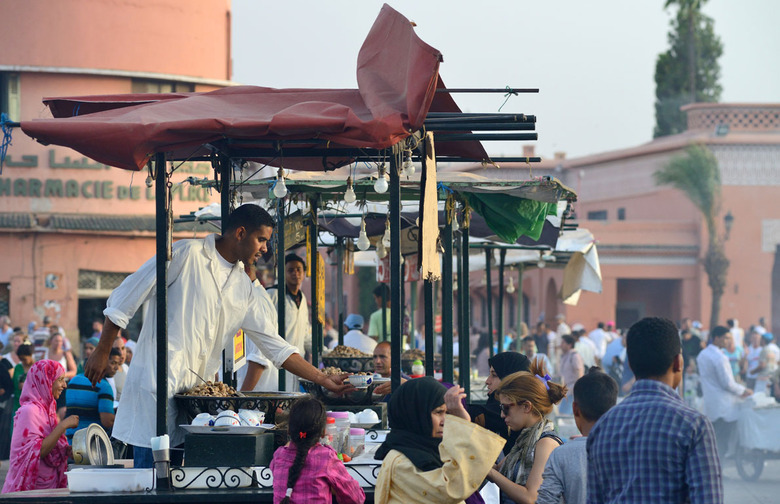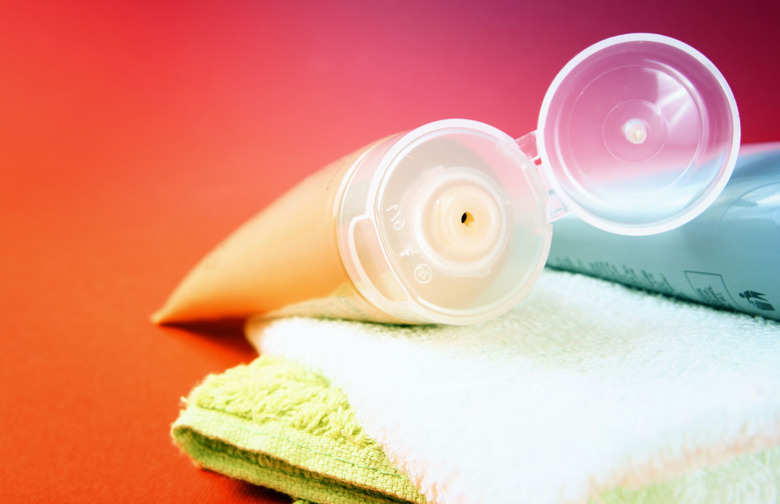How To Stay Hydrated While Traveling: 9 Experts' Tips
How to Stay Hydrated While Traveling: 9 Experts' Tips
Lots of walking, hours spent outside in the sun... traveling can be exhausting. Being 36,000 miles in the sky for seemingly endless stretches of time doesn't improve dehydration too much either, but there are still ways to stay healthy during long airplane rides. While carrying a water bottle around with you is highly recommended, we understand that it can be heavy and burdensome. But don't worry; there are other methods for beating the heat. Here are nine ways to stay hydrated while traveling.
Add Chia Seeds to Water or Food
Chia seeds, which made our list of energy-boosting foods, have hydrophilic properties — in other words, they are attracted to water. "Chia seeds absorb nine to 12 times their weight in water," dietician Tanya Zuckerbrot told us over email, which means that eating them can help you stay hydrated longer. Pack a bag in your suitcase and add it to water for a long day of sightseeing in the sun.
Avoid Sugary Drinks
While sugary drinks may quench your thirst initially, the sugars and artificial sugars siphon out your body's water storage by making your organs work harder to process them. "Be especially careful of sugary drinks that are also caffeinated," says Dr. Seema Marwaha, an internal medicine specialist in Toronto. "They actually cause you to lose more water than you gain."
Drink Coconut Water
According to Tanya Zuckerbrot, who spoke to The Daily Meal over email, coconut water is ideal for hydration because it contains natural electrolytes and potassium levels comparable to a banana. "Especially on airplanes," she says, "where it is easy to become dehydrated." Though you can't bring fluids through security, coconut water brands like ZICO are widely available in airport terminals.
Eat Fruits with High Water Content
Nutritionist Tori Holthaus of YES! Nutrition recommends water-rich foods like berries, pineapple, cucumbers, and watermelon for easy hydration, especially along with water-rich breakfasts like oatmeal. However, thin-skinned fruits like berries and cucumbers might make you sick when you travel. Fear not; fruits like pineapples, bananas, and avocados are safer to eat in countries without filtered tap water, and they pack in a lot of potassium, which enables better, longer-lasting hydration.
Eat Rice
What do you think plumps up those hard grains of uncooked rice? According to Men's Health, "super-absorbent rice acts as a vehicle for the majority of the water it was cooked in to help you replenish fluids, and the carbs help your body mop them up." While you should be a little careful of rice dishes that are too salty, remember that sodium does help your body retain water.
Eat Soup
If you're traveling in countries where the tap water is not safe to drink, soup is a great option — it's served piping hot, which kills bacteria, and it's delicious. According to WebMD, eating soups or stews is one of the best ways to stay hydrated, at home and abroad.
Go Easy on the Alcohol
Alcohol is a diuretic: it makes you urinate more frequently and expel liquids from your body before they are really ready to go. Drinking alcohol on airplanes is especially dehydrating. "For every glass of alcohol you drink," suggests Dr. Marwaha, "drink a glass of water."
Stay Out of the Heat/Plan Your Activities Wisely
Travel blogger Jasper Ribbers, who has spent the past five years traveling, strongly recommends planning major outdoor sightseeing activities for the early morning or the late afternoon, when the sun isn't as strong. This is especially easy for those traveling to countries that partake in an afternoon siesta.
Use Moisturizer
Moisturizer not only helps you look your best on airplanes — no easy feat — but, according to Dr. Stacy Banerjee, a physician and co-founder of health-monitoring startup Salusity, it also helps you stay hydrated. "Because you can lose a great deal of fluid through your skin," says Banerjee, "minimize your insensible fluid losses by applying a good moisturizer to not only your face, but the rest of your body as well." She also advises wearing layers, as it allows you to adjust your clothing based on the temperature.
